Key takeaways:
- Peer review is essential for validating research and provides valuable feedback that can enhance the quality and direction of future work.
- Different peer review models (traditional, open, post-publication) each have their benefits and challenges, influencing transparency and engagement in the review process.
- Major challenges include inconsistency in reviewer quality, time delays in receiving feedback, and reluctance among researchers to participate as reviewers.
- Improving peer review could involve better communication, clearer timelines for reviews, and a feedback loop for reviewers to enhance their contributions.
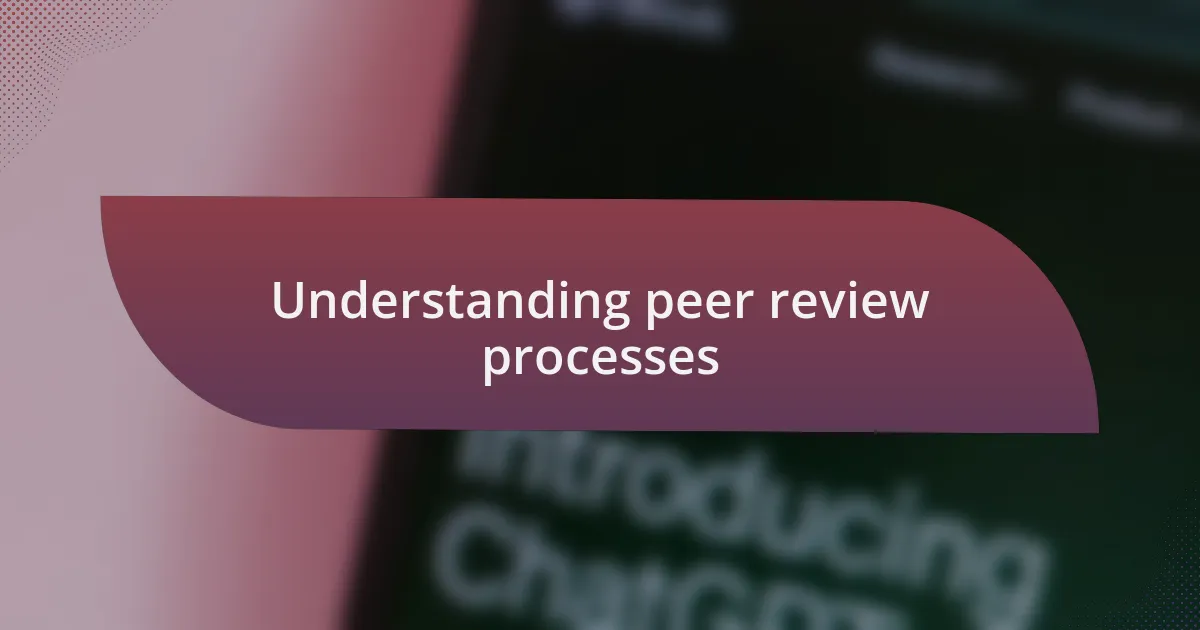
Understanding peer review processes
The peer review process serves as a critical checkpoint in the academic world, ensuring that research meets the standards of validity and reliability. I remember the first time I submitted a paper and felt that jolt of anxiety waiting for feedback. Will the reviewers appreciate my work? This anxiety is common, but it highlights the immense value of having knowledgeable experts evaluate the findings.
At its core, the process involves independent experts examining a researcher’s work before it is published. It’s fascinating to think about how these reviewers meticulously assess not just the data but also the arguments and methods used. This rigorous evaluation means that, as researchers, we often learn and grow from the perspectives and critiques provided by our peers. Have you ever considered how even a critical review can shape the direction of future research?
I often reflect on how the dialogue initiated through peer review is not just a one-time event; it’s part of a broader conversation within the academic community. Each round of revisions can lead to incredible insights and deeper understanding. Personally, I’ve found that incorporating feedback often led to breakthroughs I hadn’t anticipated before. It’s a testament to the collaborative nature of knowledge-building.
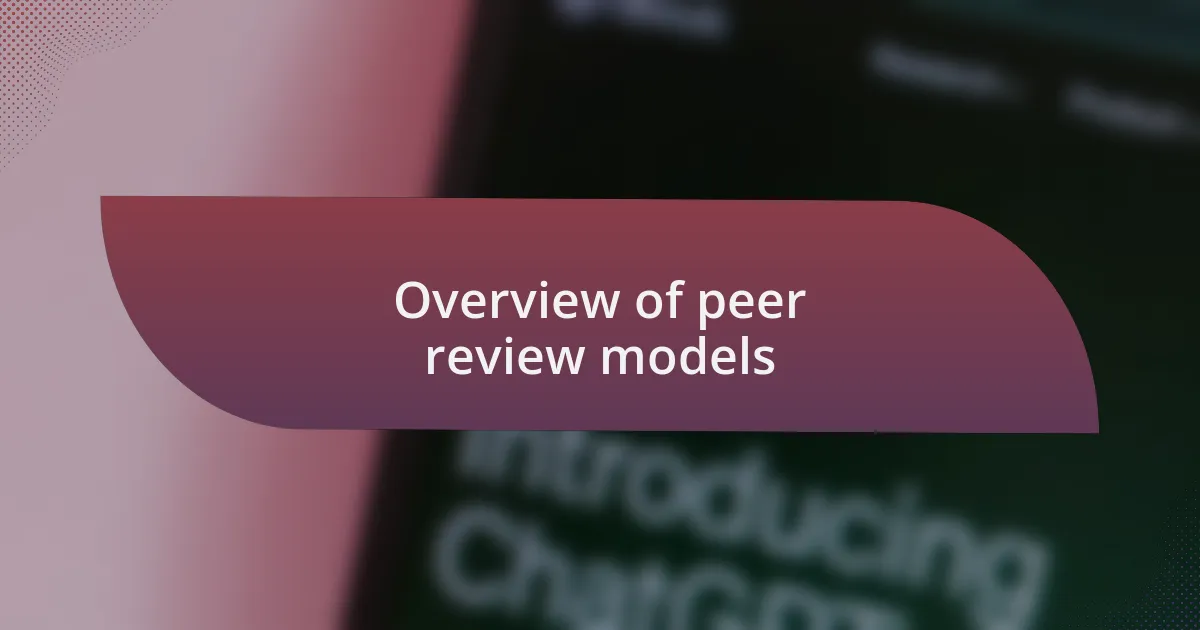
Overview of peer review models
Peer review models vary widely, each offering distinct advantages and challenges. For instance, traditional blind peer review, where reviewers remain anonymous, aims to eliminate bias but can sometimes lead to an impersonal exchange. I remember feeling relieved when my reviewers provided constructive feedback without knowing my identity; it felt like a safe space for improvement. Yet, I wonder if this anonymity can also limit the accountability of reviewers.
On the other hand, open peer review has gained traction in recent years, allowing for transparency in the process. In my experience, seeing the reviewers’ identities can lead to more thoughtful critiques. When I once participated in an open peer review, I was surprised by how much the authors and reviewers engaged in a meaningful dialogue, sharing insights that shaped the final publication. It made me appreciate the value of vulnerability in academic discussions.
Emerging models, like post-publication peer review, shift the focus towards ongoing evaluation of research even after it is published. This approach intrigues me; it’s like continuing a conversation long after the initial submission. I’ve seen how quickly feedback can evolve in this format, allowing others to contribute their thoughts and leading to a richer understanding of the research impact. It raises a question: could this model foster a culture of perpetual learning and adaptation in our academic endeavors?
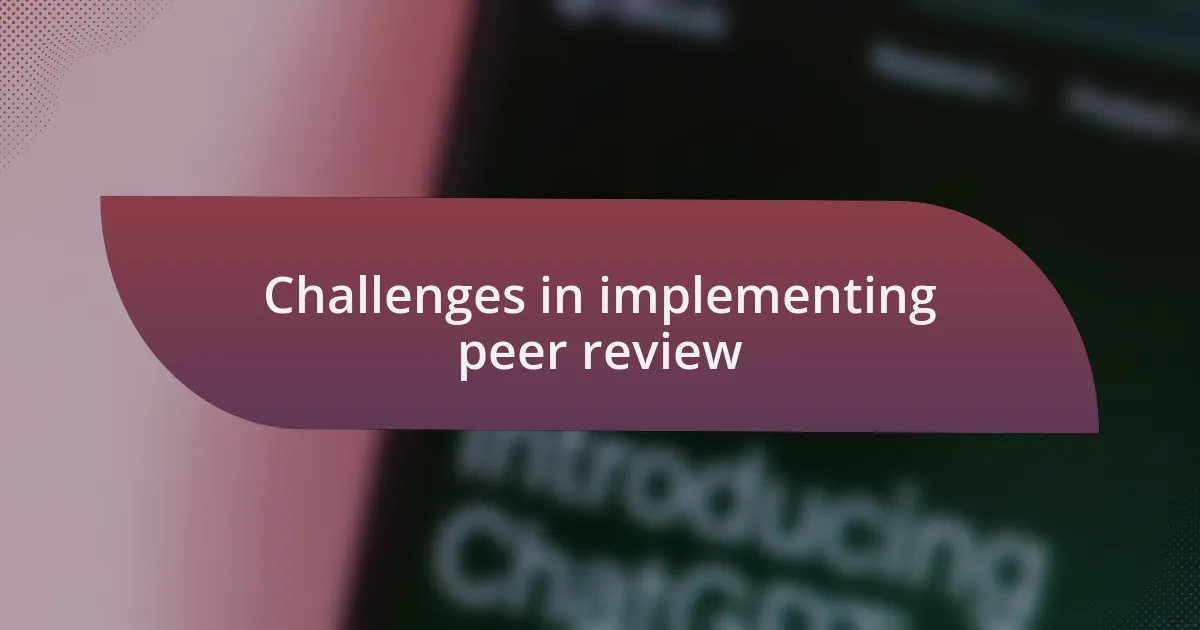
Challenges in implementing peer review
Implementing the peer review process brings about a few notable challenges that can complicate the journey for researchers. One significant hurdle is the inconsistency in reviewer quality. I recall submitting a manuscript where one reviewer provided insightful feedback, while another seemed to miss the core arguments entirely. This left me feeling frustrated and questioning the reliability of the review process. How do we ensure that all reviewers possess the necessary expertise and commitment?
Another challenge lies in the time demands associated with peer review. Deadlines often stretch, and I’ve found myself anxiously waiting for weeks, even months, for decisions on my submissions. This delay not only adds stress but can hinder the momentum of research, particularly when timely findings are essential for policy scrutiny. Is there a way to balance thoroughness and efficiency without compromising the integrity of the review?
Furthermore, the reluctance of researchers to take on reviewer roles can exacerbate these issues. I’ve spoken with colleagues who hesitate to participate in the peer review process due to time constraints or fear of criticism. This lack of participation can slow down the entire system. How can we encourage more researchers to contribute as reviewers and foster a community dedicated to constructive criticism and improvement?
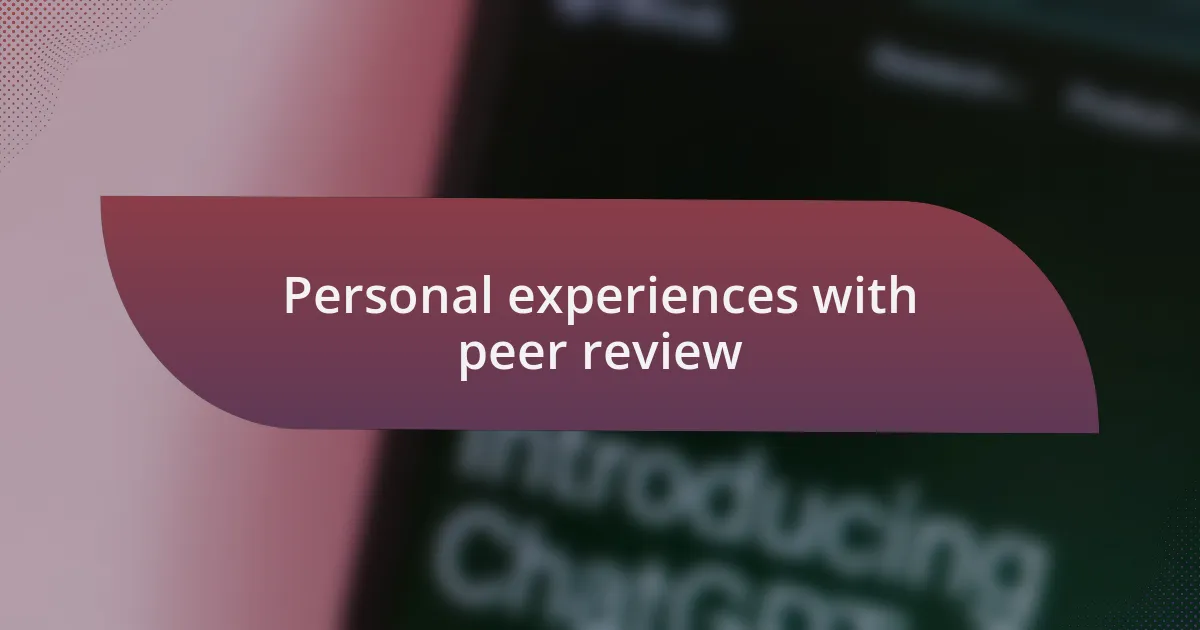
Personal experiences with peer review
I vividly remember my first experience with the peer review process when I submitted a paper I had poured my heart into. The anticipation was palpable, but what struck me most was the mixed bag of feedback I received. One reviewer’s comments were deeply insightful and helped refine my arguments, while another’s critique felt overly harsh and disconnected from my work’s essence. It made me wonder: how can such differing perspectives coexist in a system meant to uphold quality?
In another instance, I faced a particularly long peer review cycle that tested my patience. After weeks of waiting for responses, I found myself caught in a whirlwind of uncertainty regarding my research’s direction. The protracted timeline felt like climbing a steep hill without knowing if I would reach the top. This experience led me to reflect on the balance between thoroughness and the natural pace of progress. Is it possible to streamline the process without sacrificing the depth of critique that a well-rounded review demands?
I’ve also experienced the emotional toll of rejected submissions, which can feel like a personal blow. Each rejection stings, but the occasional constructive feedback can offer a glimmer of hope. These moments have made me appreciate the value of reviewers who genuinely engage with my work. How can we cultivate a culture where feedback feels supportive rather than punitive, fostering a growth mindset in the research community?
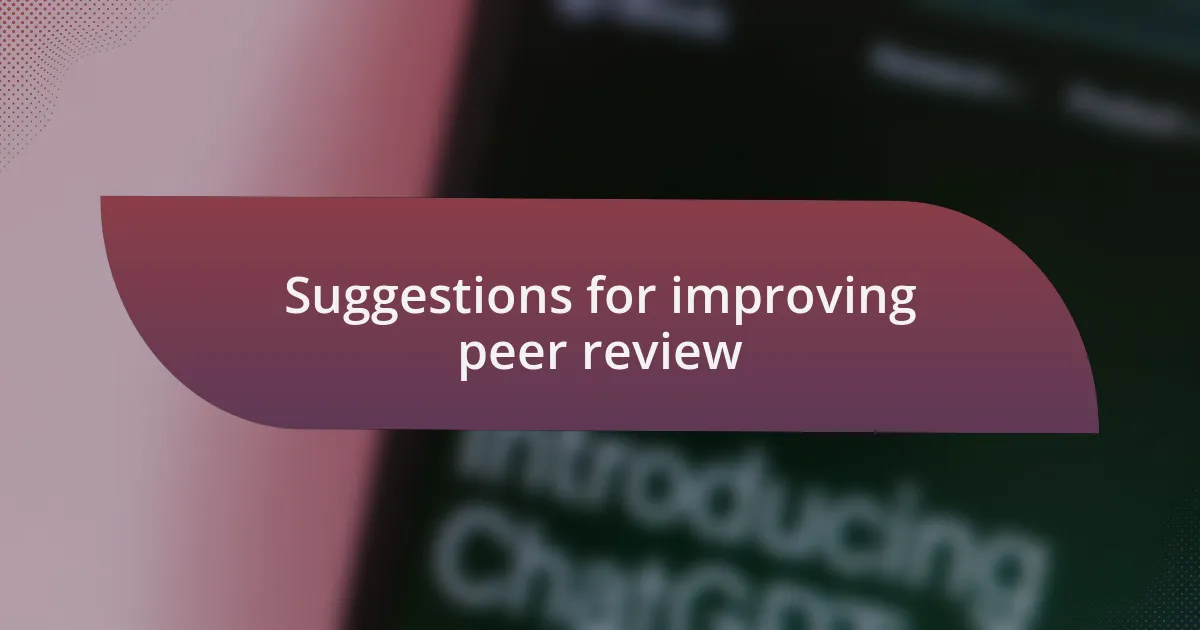
Suggestions for improving peer review
To enhance the peer review process, fostering clearer communication between authors and reviewers is crucial. From my own experience, I’ve seen how vague feedback can leave authors feeling lost and demoralized. Setting specific guidelines for reviewers on how to provide constructive criticism, while encouraging them to be kind and supportive in their language, could create a more positive atmosphere. How can we expect authors to improve their work if the feedback is cryptic or overly harsh?
Another suggestion involves implementing a more transparent review timeline. I remember waiting for what felt like an eternity for reviews, only to learn that the process could have been expedited. By establishing and publicizing expected timelines for reviews, journals can alleviate stress for authors. This transparency would not only help in managing expectations but also in building trust in the system.
Finally, incorporating a feedback loop for reviewers themselves could bring significant improvements. Reflecting on my experiences, I understood that many reviewers might benefit from receiving insights on how their comments were interpreted or acted upon. This type of system would encourage reviewers to think critically about their feedback and continuously improve, fostering a culture of growth in the research community. How valuable would it be to know that your words not only impact research but also help your peers evolve in their contributions?